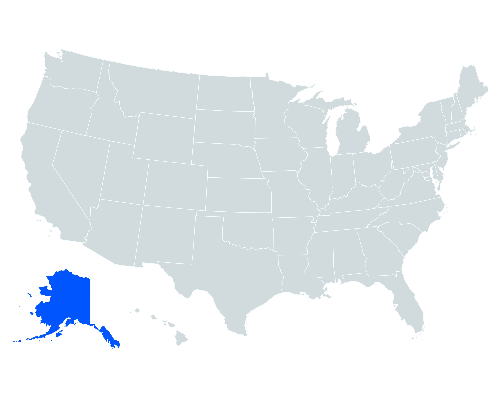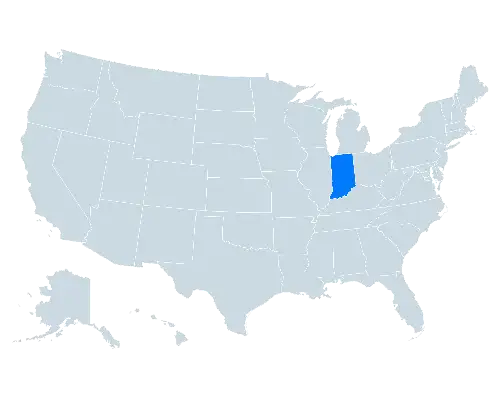Overview of Alaska Taxes
Alaska distinguishes itself from many U.S. states with its absence of a state income tax. As the Last Frontier State, it relies on other means such as higher-than-average sales taxes. Despite this, Alaska maintains a fiscal balance with its property tax rates that sit below the national average.
To use the Alaska income tax calculator, simply input your desired salary and filing status to begin.

2023/24 Alaska Income Tax Calculator
Alaska is renowned for being one of the most tax-friendly states in the U.S., a reputation bolstered by the lack of a state income tax and state-level sales tax. However, Alaska’s fiscal landscape is more complex, including a mix of property taxes, natural resource taxes, and local sales taxes. This analysis aims to provide a comprehensive overview of taxation in Alaska.
$0 Fed. $0 State. $0 to File. For simple tax returns only. See if you qualify.
View our advertiser disclosure here.
State Income Tax
Absence of State Income Tax
- Unique Selling Proposition: Alaska is one of the seven U.S. states without a state income tax.
- Impact on Business: While the absence of a state income tax attracts entrepreneurs, corporations, and high-net-worth individuals, it does result in a greater reliance on other forms of taxation for state revenue.
Property Taxes
Rate Variability
- Average Rates: Alaska’s average property tax rate hovers around 1.19%, a bit above the national average of 1.08%.
- Municipal Differences: Property tax rates can differ significantly across municipalities and boroughs, with a range generally between 0.5% to 2.0%.
Sales Tax
State-Level Absence
- No State Sales Tax: Alaska does not impose a statewide sales tax.
Local Sales Tax
- Local Rates: Despite the absence of a state-level sales tax, some local jurisdictions charge sales taxes ranging from 2%–5%.
Exceptions
- Special Taxes: Certain local jurisdictions impose specialized taxes on items like alcohol, tobacco, and hotel stays.
Natural Resource Taxes
Severance Taxes
- Oil and Gas: Alaska’s severance tax rate for oil and gas is 12.5%, which is near the top range for severance taxes in the U.S.
Additional Natural Resource Taxes
- Mining License Tax: Up to 7% of net profits
- Mining Operations on State Land: An additional 3% net profit royalty
- Gas Severance Tax: 4% of taxable value
- Stripper Well Severance Tax: 2% for annual value less than $1.15 per MCF, 3% for annual value greater than $1.15 but less than $1.35 per MCF
Revenue Significance
- State Funding: In 2021, Alaska’s per capita severance tax revenue was $530. The oil and gas industry largely funds state government operations.
Corporate Taxes
Variability in Rates
- Range: Corporate income tax rates in Alaska range from 2.0% to 9.40%, contingent upon a variety of factors including income levels and type of business.
Previous Alaska Income Taxes
Federal Income Tax: A Constant
While Alaska residents benefit from the absence of a state income tax, they are subject to federal income taxes like all U.S. residents.
Changing Federal Tax Brackets
Federal tax brackets have seen numerous adjustments over the years, typically implemented by varying administrations and Congressional acts, often to account for factors like inflation.
Understanding Alaska’s tax landscape requires considering not just the lack of a state income or sales tax, but also the state’s reliance on natural resource and property taxes. Effective financial planning in Alaska demands a nuanced understanding of this multifaceted tax environment.
2012 and 2002 Alaska Income Tax Calculator
Related
- Wyoming Income Tax Calculator
- Nevada Income Tax Calculator
- Texas Income Tax Calculator
- Florida Income Tax Calculator
- California Income Tax Calculator
Convenience and security, without the fees. Open an account in about 5 minutes.
$0 Fed. $0 State. $0 to File. For simple tax returns only. See if you qualify.
View our advertiser disclosure here.









